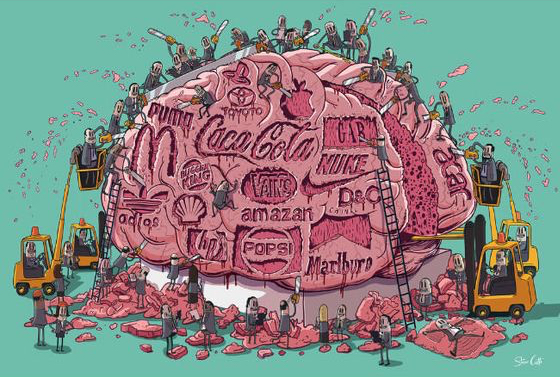With the ascension of the internet era, humans consumation of goods and human behaviour have been exposed to new possibilities. The instant gratification world allows us to reach our necessities and desires with just a few clicks. Researchers in new age branches of psychological sciences like behavioural economics, cyber behaviour or neuromarketing are studying consumer behaviour transition to the online environment. New constructs that facilitate acceleration of percieved usefulness of goods, ease of use and complexity of experience for consumers are constantly incorporated. As the historian Yuval Noah Harari expressed in one of his speeches, It seems like the supreme commandment that guides the modern society is ‘Buy!’. So are we really becoming slaves of our own desires? How is consumerism affecting our neurological wiring and what can we learn from what we know about our consumption behaviour today?
Professor James Twitchell mentioned that “Getting and spending has become the most passionate, and often the most imaginative, endeavor of modern life”. The actual data confidently confirms this as we saw a world with 10 billion Internet connected devices in 2008, growing towards 50 billion by 2020, according to Cisco estimations. Our desire to obtain products excceeds our basic needs. This tendency is gradually moving us towards a world where networks of diverse items embedded with electronics, software and network connectivity can connect to each other and gratify the consumer. Scientists predict that by 2020 sales related to the Internet of things will reach $9Trilion.
And if 20 years ago some mayonnaise brand was the most popular and loved product, nothing exceeds consumers love for technology in the XXIst century, with iPhones topping the list (Rooney , 2010). We love things that excite our brains, and it is not questionable that the evolution of the culture of consumption made our experience and standard of living better. We are better connected, more self-aware, have more acces to information and we live longer. However, despite the possitive effects, according to a 2012 psychological study, Dr. Monika Bauer and her colleagues concluded that consumerism may also lead to depression, antisocial behaviour and affect our long-term happiness and relationships (Bauer et al., 2012). Moreover, falling back into the subject of privacy from the previous article, with a growing number of hacks and breaches, more consumers know their private data is at risk. Therefore, cybersecurity anxiety is a new concept of our time describing the psychological perception of mistrust and instability towards which consumer culture can push us.
There is no doubt that the consumer society is going to become more regulated, purposeful and complex with time. The choices that we make at an individual level in regards to how we percieve and consume cyber-goods or material goods through cyber-environments may not seem to affect the bigger picture, our views amounting to no more than a drop in a limitless ocean. Yet what is any ocean, but a multitude of drops (Tykwer, T, 2012). We must not forget that we have the power to decide the course of our own lives and keep in mind the multifaceted beauty of life, trying to educate our psyche to find a balance between the online and the off-line existence in the society without jeopardising the collective morality and happiness.
References:
- Monika A. Bauer, Galen V. Bodenhausen, James E. B. Wilkie and Jung K. Kim. Cuing Consumerism: Situational Materialism Undermines Personal and Social Well-Being. Psychological Science, 2012
- Wang, J. (2014). South China Morning Post. Retrieved 16 December, 2017, from http://www.scmp.com/lifestyle/health/article/1434186/studies-find-shopping-sprees-can-lift-depression-and-improve-health
- Zheng, Y. (2012). Encyclopedia of Cyber Behavior. (2012 ed.). : IGI Global; Three Volumes edition.
- Harari, Y.N. (2015). Tedcom. Retrieved 16 December, 2017, from https://www.ted.com/talks/yuval_noah_harari_what_explains_the_rise_of_humans
- Rooney , J. (2010). Adagecom. Retrieved 16 December, 2017, from http://adage.com/article/news/consumers-cutting-back-purchases-indulgences-stay/146398/
- Tykwer, T. (Director). (2012). Cloud Atlas. [Feature Film]. : Wide Release
